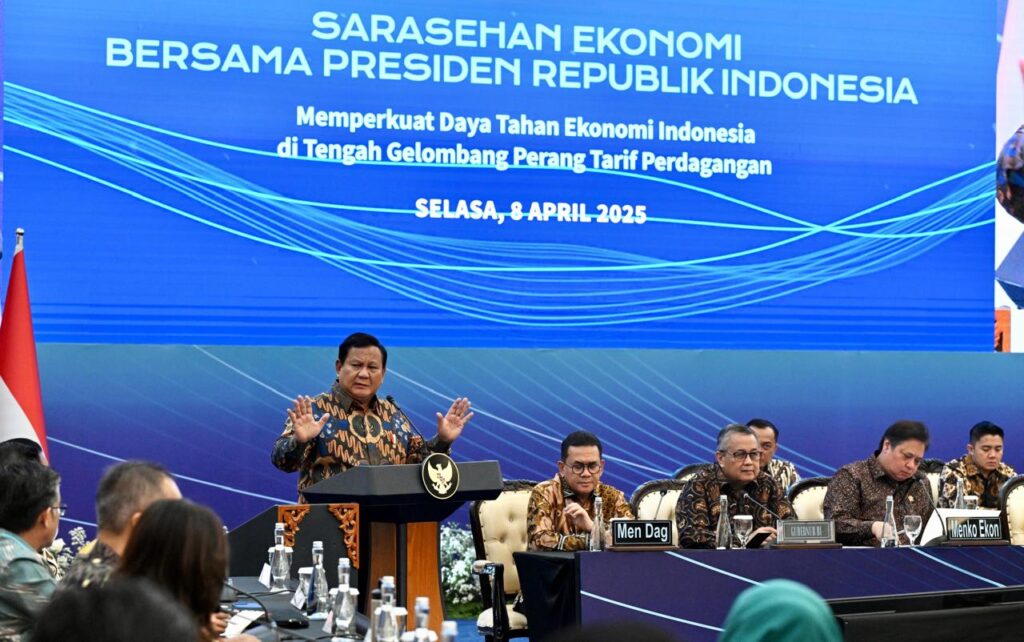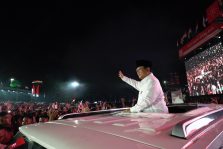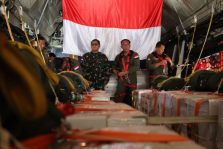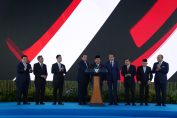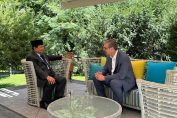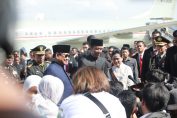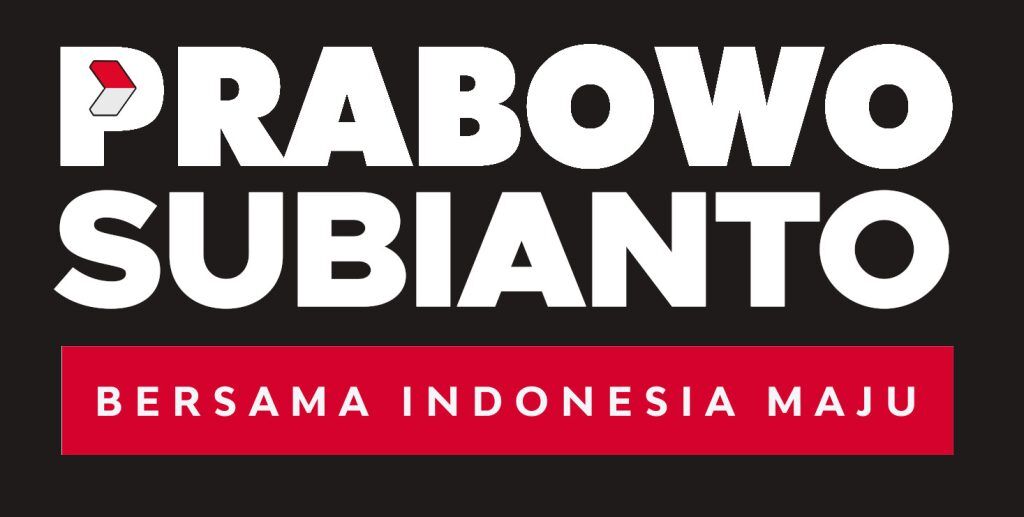Jakarta — President of the Republic of Indonesia, Prabowo Subianto, stated that the reciprocal tariffs imposed by the United States (US) have triggered global uncertainty and caused concern among many countries about the state of the world economy. However, he believes Indonesia is capable of facing and managing these challenges.
He made the statement while attending an economic forum titled “Strengthening Indonesia’s Economic Resilience Amid the Wave of Trade Tariffs”, which brought together economists, investor representatives, and editors-in-chief of national media outlets.
“What we’re witnessing now is global turmoil caused by one of the world’s strongest economies making policy decisions that drastically increase tariffs on many countries. This has clearly led to global uncertainty. Many countries are worried,” Prabowo said on Tuesday (April 8).
“Yes, we will face challenges, but after discussing with my team, it turns out the situation is manageable and within our control,” he added.
Prabowo emphasized that Indonesia’s economy must be self-reliant, echoing the vision long upheld by the nation’s founding fathers.
“Our founding fathers, and I myself have long urged, let’s build an economy that stands on our own feet,” he said.
Prabowo also expressed confidence and optimism in the current state of Indonesia’s economy as it faces these global challenges.
“If some people want to dwell in negativity, that’s their choice. But as for me—I’m optimistic. I’m proud,” he said.
His optimism is not without basis. Coordinating Minister for Economic Affairs, Airlangga Hartarto, also shared several key indicators that reflect the strength of Indonesia’s economy.
First, Indonesia’s economy grew by 5.03% (c-to-c) in 2024. Growth was positive across all regions, with the highest seen in West Papua (20.8%) and North Maluku (13.7%). All sectors grew positively, with the manufacturing industry contributing the most (18.98% of GDP).
Second, as of March 2025, Indonesia recorded monthly inflation (mtm) of 1.65% and annual inflation (yoy) of 1.03%.
Third, The Consumer Confidence Index (CCI) stood at 126.4 in February 2025 (down slightly from 127.2 in January), but still firmly in the optimistic zone (above 100).
Fourth, The Manufacturing Purchasing Managers’ Index (PMI) remained expansionary at 52.4 in March 2025 (down from 53.6 in February), indicating increased domestic demand and output.
Fifth, although the Real Sales Index (RSI) contracted by 0.5% yoy in February 2025, it still recorded a 0.8% mtm growth, largely driven by the food, beverage, and tobacco sectors.
Sixth, The Balance of Payments (BoP) posted a surplus of USD 7.2 billion in 2024. Credit growth reached 10.4% in February 2025 (with an average of 11.3% in 2024), and third-party funds (DPK) saw a slight increase to 5.75%.
Seventh, As of the end of February 2025, Indonesia’s foreign exchange reserves stood at USD 154.5 billion, enough to cover 6.6 months of imports or 6.4 months of imports plus government external debt repayments.
Eighth, Indonesia recorded a trade surplus of USD 3.12 billion in February 2025, continuing a 58-month streak of trade surpluses.
“According to Moody’s latest report, Indonesia’s economic resilience remains intact, supported by strong domestic demand and the government’s commitment to maintaining credible monetary and fiscal policies,” said Airlangga.
He added that the government’s downstreaming policy and efforts to boost competitiveness in the manufacturing sector have positively contributed to growth—enhancing industrial productivity, reducing dependency on raw material exports, and creating higher value-added output.

